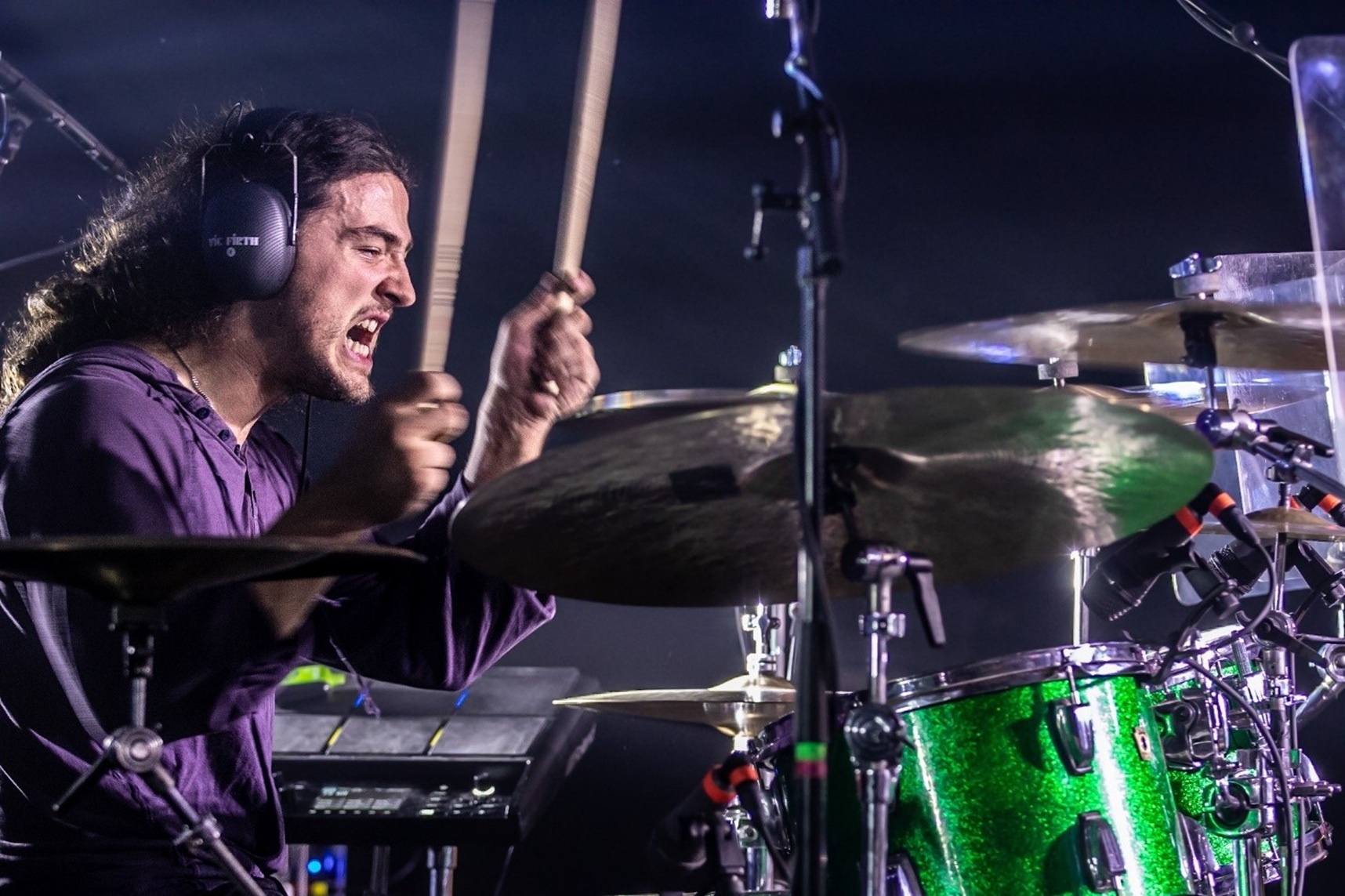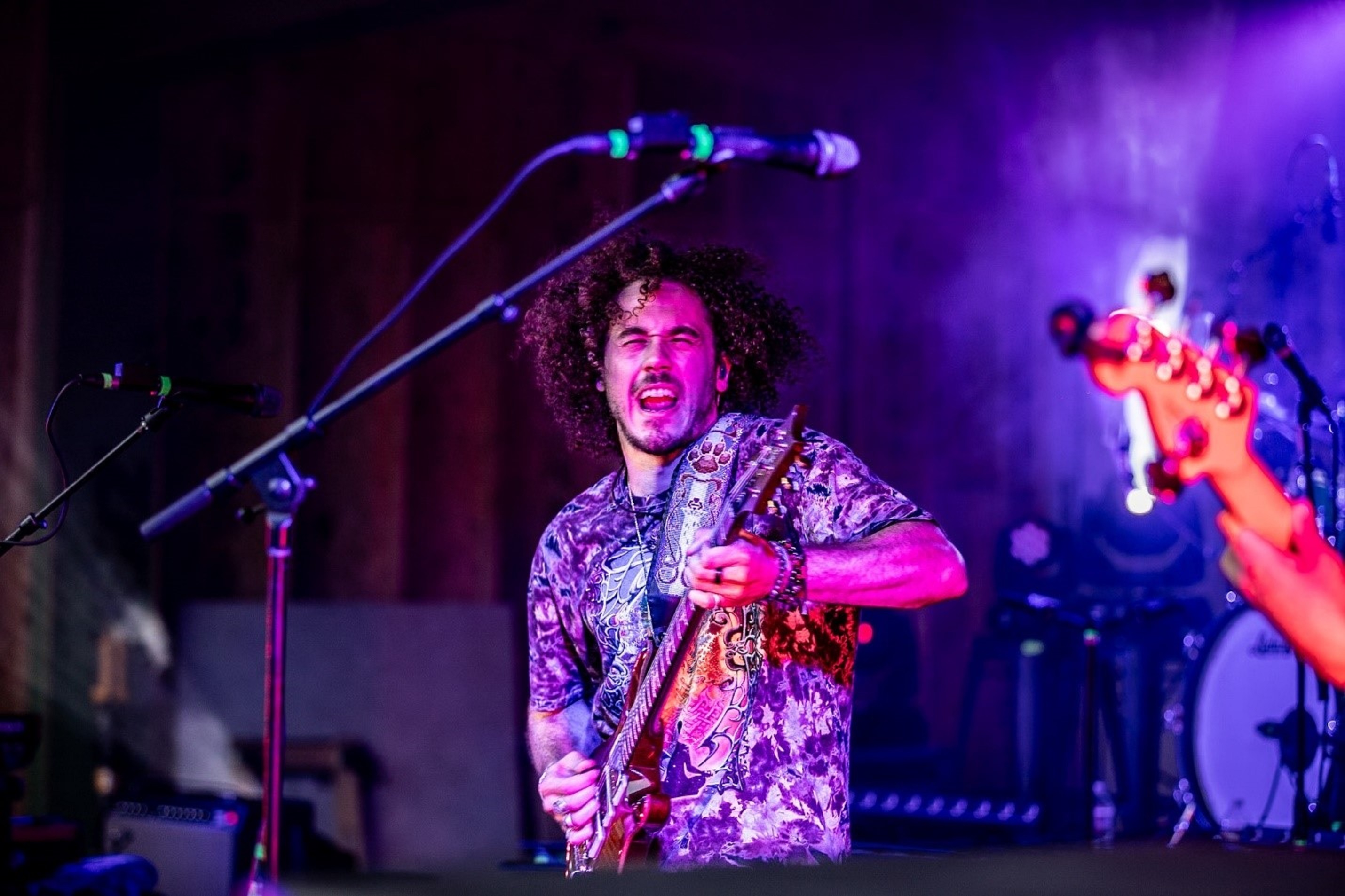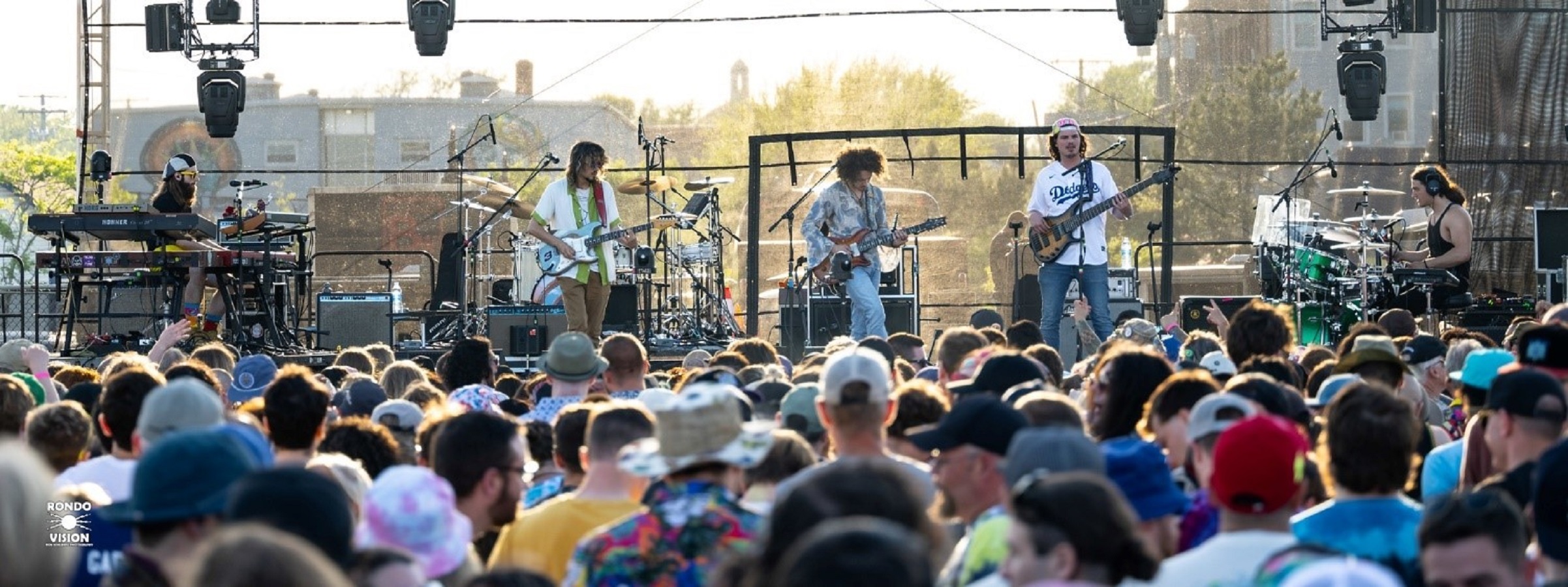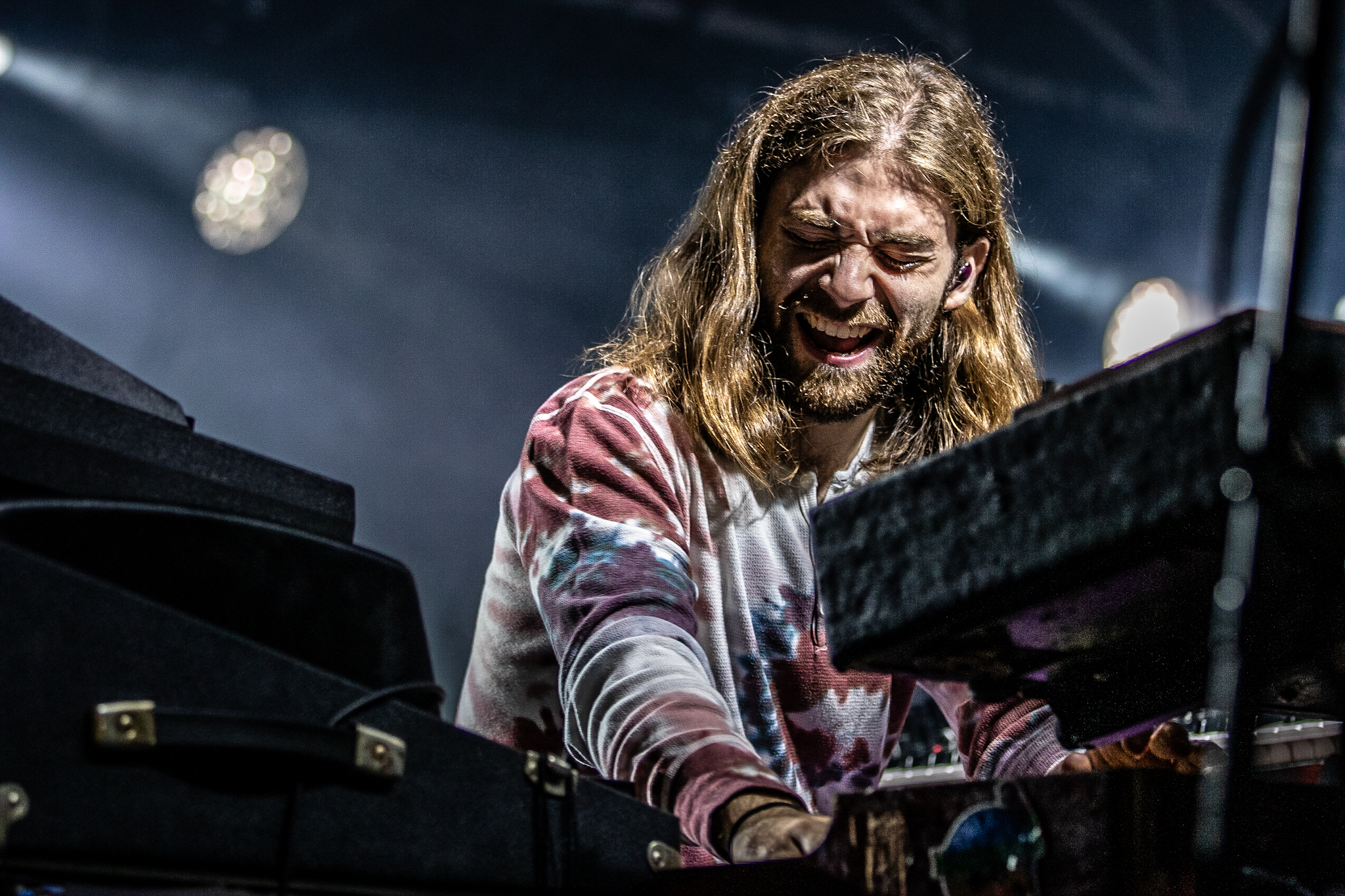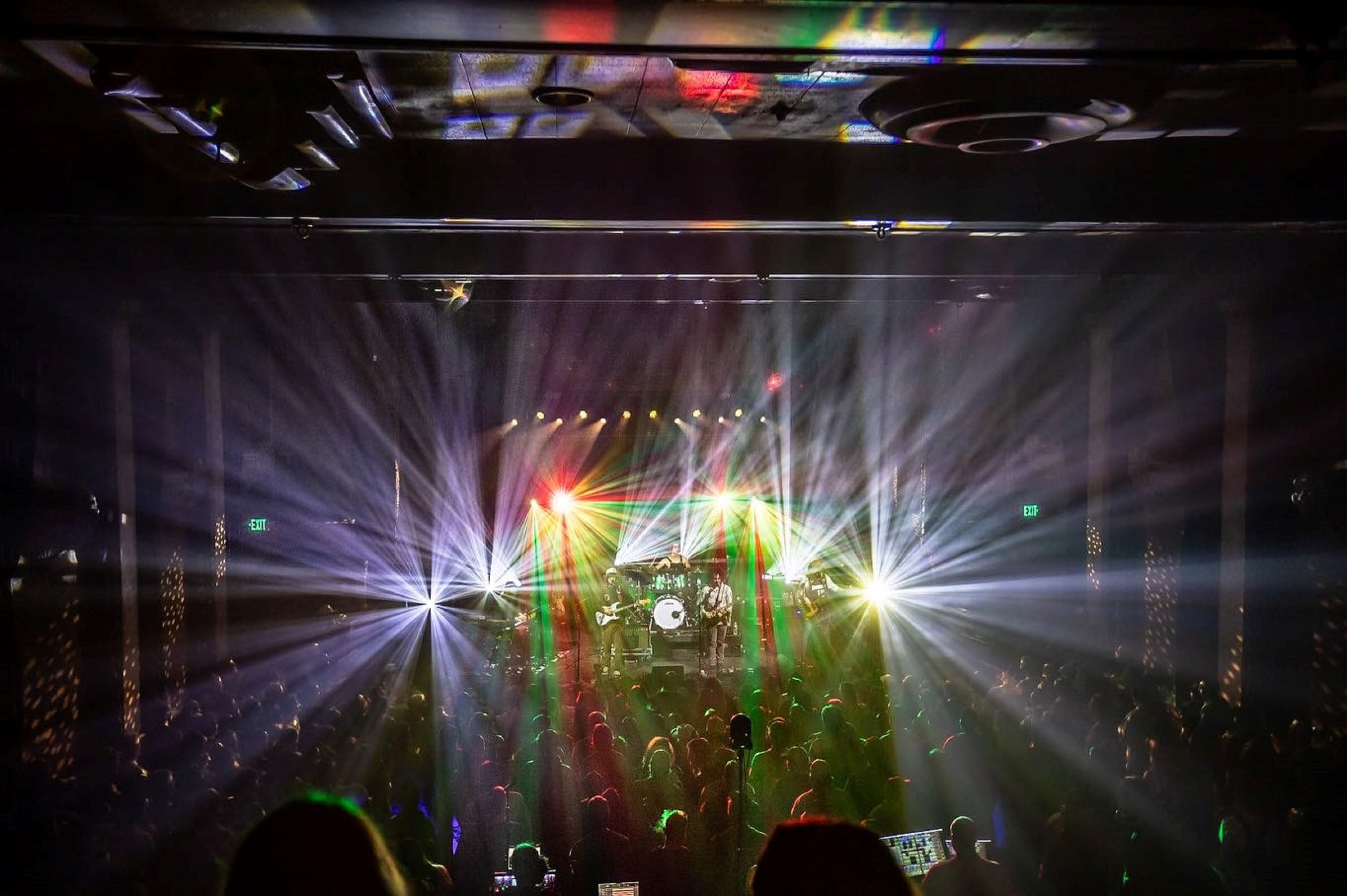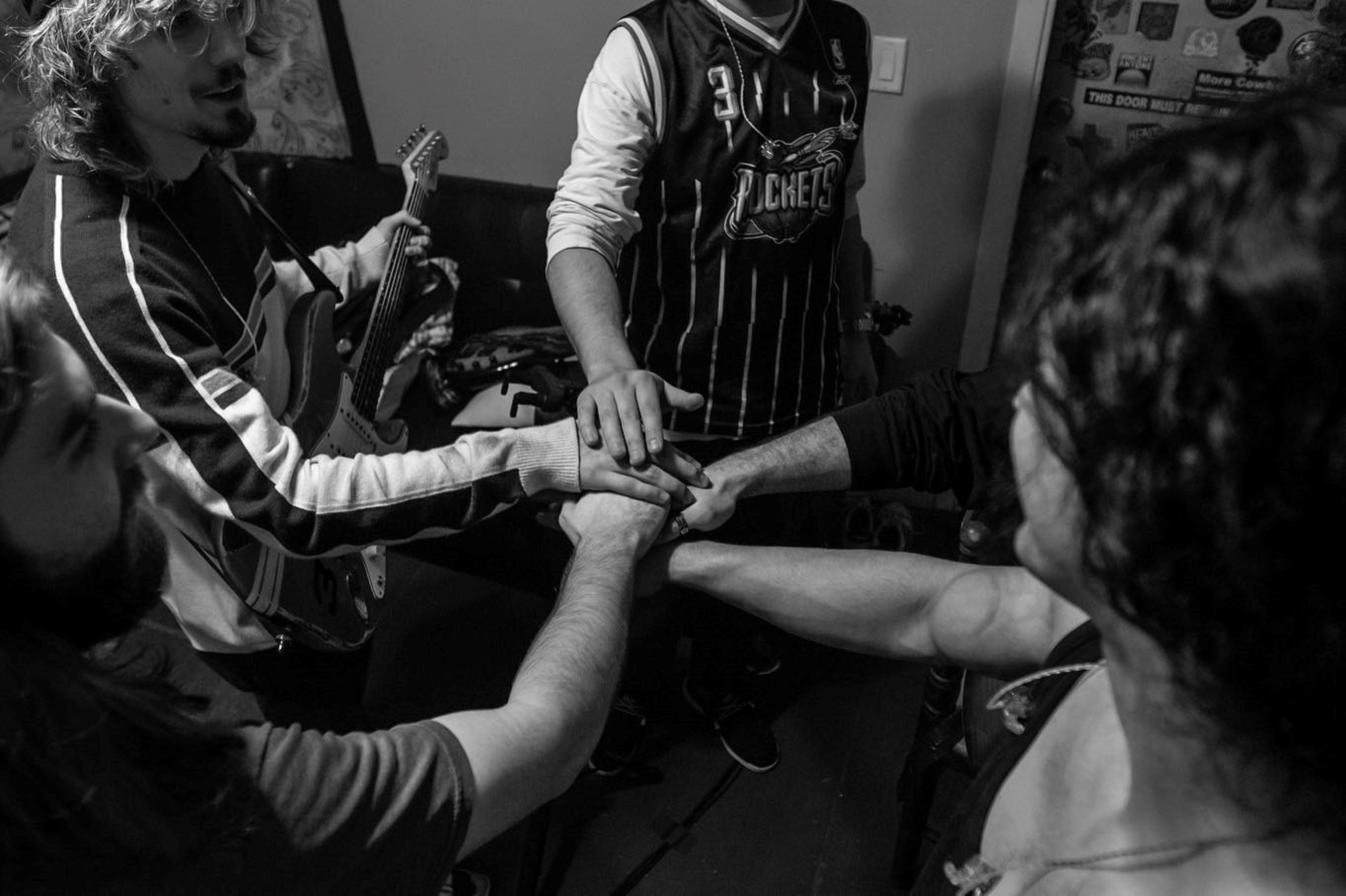In the final edition of our five-part interview series with Dogs In A Pile (DIAP), Joey Babick, the band’s powerhouse drummer, takes us through his musical foundations, influences, and the unique approach he brings to the band's sound. He opens up about the balance between aggressive, rock-inspired beats and the improvisational freedom of jazz, drawing from the legendary drummers who shaped his style. Babick also touches on the chemistry he shares with his bandmates, the thrill of playing in iconic venues, and his experiences on the road, offering a candid glimpse into the life of one of the jam scene’s youngest and most promising talents behind the kit.
Grateful Web (GW): What first drew you to the drums? I know you can also play bass, but how did you know drums were the instrument you'd stick with?
Joey Babick: I think it started when I was a kid. My dad played in bands and was a bass player, so I’d watch him perform. Then, later on, I saw Jimmy [Law] play in bands too, and by that point, I was already playing the drums. There was something about them. They just looked so fun and alluring.
GW: Jimmy Law previously told us you two grew up as family friends in Jersey, jamming with your dad. Earlier this year, all three of you shared the stage in Solana Beach for a cover of "Bird Song." Was it special to have your dad sit in and play bass with the band? What was that moment like?
Joey Babick: Yeah, it was really cool. It was funny because it was very last-minute. On the day of the show, we asked, “Do you want to sit in?” We knew Mission Control would be there, and he's one of the biggest Phil [Lesh] fans I know. I just thought, “When else would we get the chance to do this?” And honestly, he sounded great. But it was funny because he’s like me – he wasn’t totally confident about his performance since there was no time to practice. But still, I thought he played great, and it felt awesome.
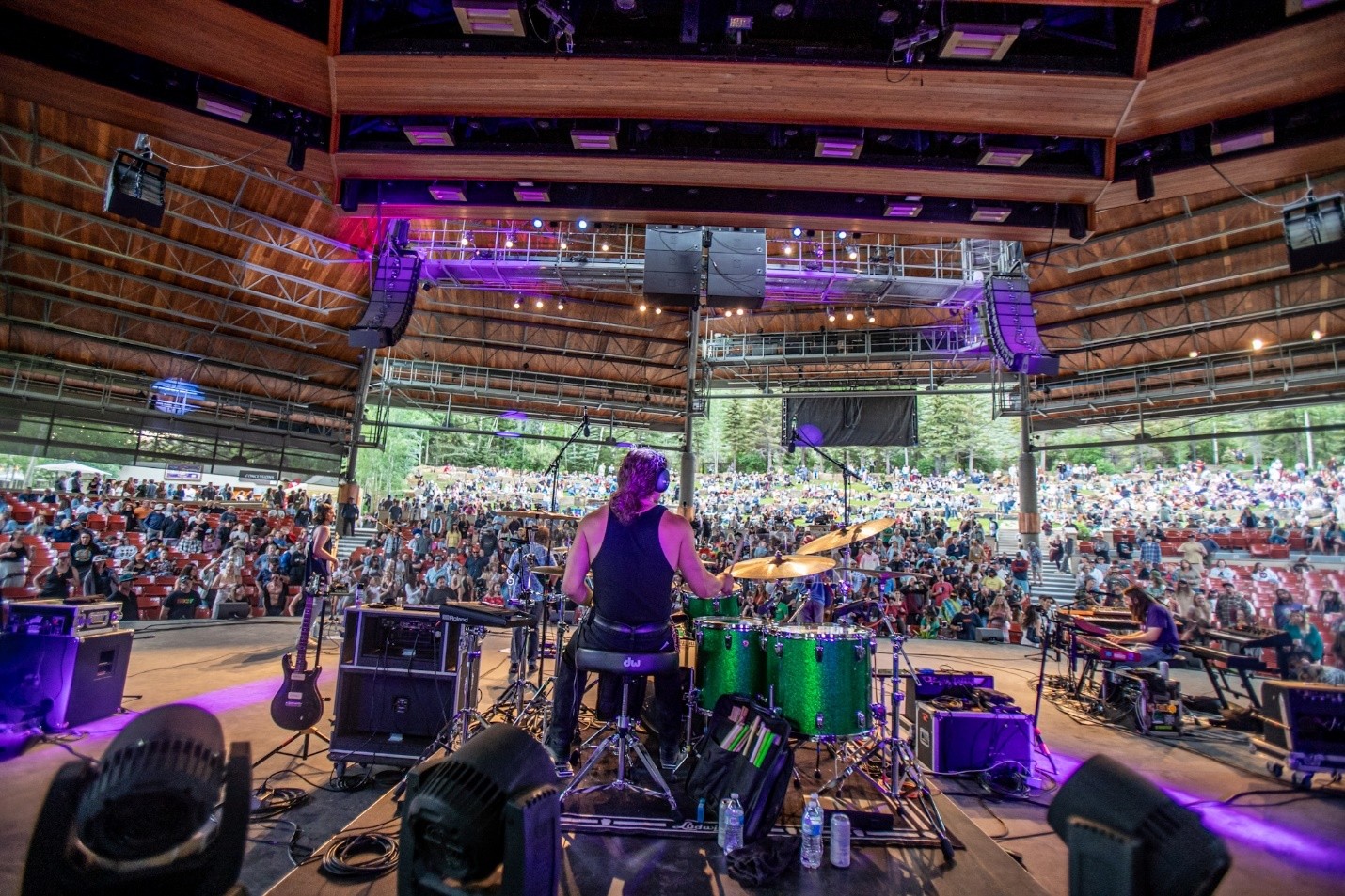
GW: Looking further into your earlier days, I know your dad was involved in music, and you were in the Count Basie Theater program for a short time. What would you say was your biggest takeaway from that experience?
Joey Babick: I met a lot of great musicians there, especially young people who were very skilled at their craft. It was cool to make friends and jam with them. Musically, the program taught me to learn the parts exactly as they are on the record, which is important for respecting the music. But I also learned that it’s essential to be yourself in music. If you’re not expressing yourself, what’s the point? Music is supposed to be personal, and it should come from within.
GW: We’ve always felt your drumming creates such a unique, hard rock foundation for the band. How do you balance laying down a powerful, aggressive beat while leaving room for the improv and flow of jazz?
Joey Babick: That’s a great question. It’s something I’m always figuring out. I try to keep that solid foundation, but still have the freedom to interact musically with the band. I want to drive the intensity without taking over. It’s a balancing act, and every show is a learning experience.
GW: Do you get that aggressive style from any specific influences? Did that come from somewhere, or was it just natural?
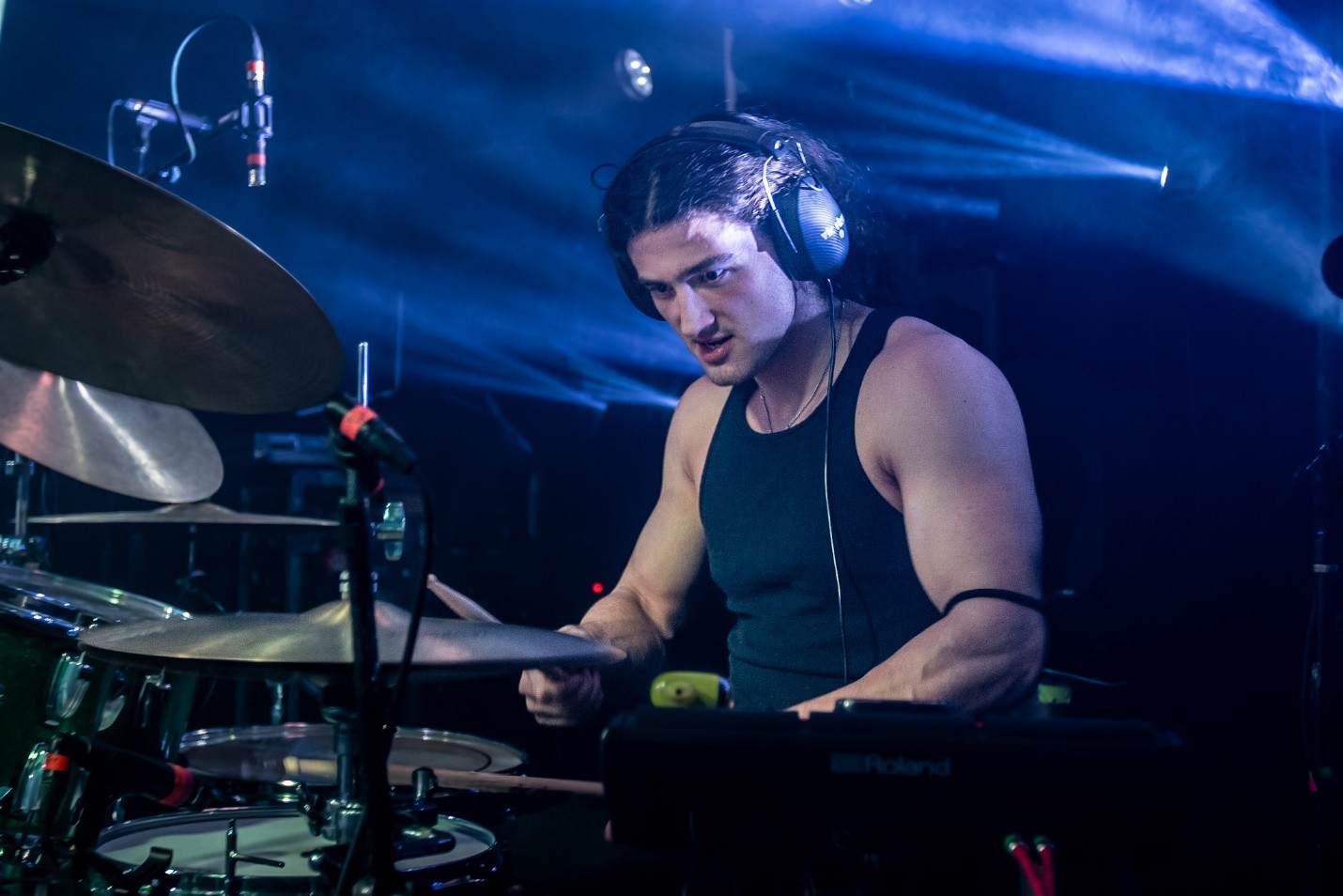
Joey Babick: I grew up a huge fan of Bill Ward, John Bonham, and Roger Taylor. Those guys were my influences. Out of all the rock legends, John Bonham was probably my favorite. He had this aggressive style but with these incredible grooves. There was just something about those British drummers – they had these ridiculous pockets that are still unmatched today. Sabbath, Zeppelin, Queen – all very different but aggressive and with grooves that hit hard. And I guess naturally, I’m a bit of an aggressive personality too – especially when I was younger. So, that’s probably where it comes from.
GW: The jam scene is synonymous with tension and release guitar playing. Do you think you achieve that on the drums? Is that something you can drive, or is it more about being in sync with the rest of the band?
Joey Babick: It goes both ways. There’s definitely a tension-building aspect on the drums, especially right before a peak moment. But it’s also about the entire rhythm section dictating the dynamic. The whole band creates that tension, and then when everything comes together, it releases. It’s about what you do rhythmically and melodically before that big peak hits.
GW: It’s about restraint, right? Choosing the right spots?
Joey Babick: Exactly. Restraint is just as important as aggression.
GW: So, you mentioned the connection you have with the guys on stage. You seem to have that in spades with your keyboardist Jeremy Kaplan. Why do you think that connection exists? Does it feel like it’s always been there, or did it take time to build?
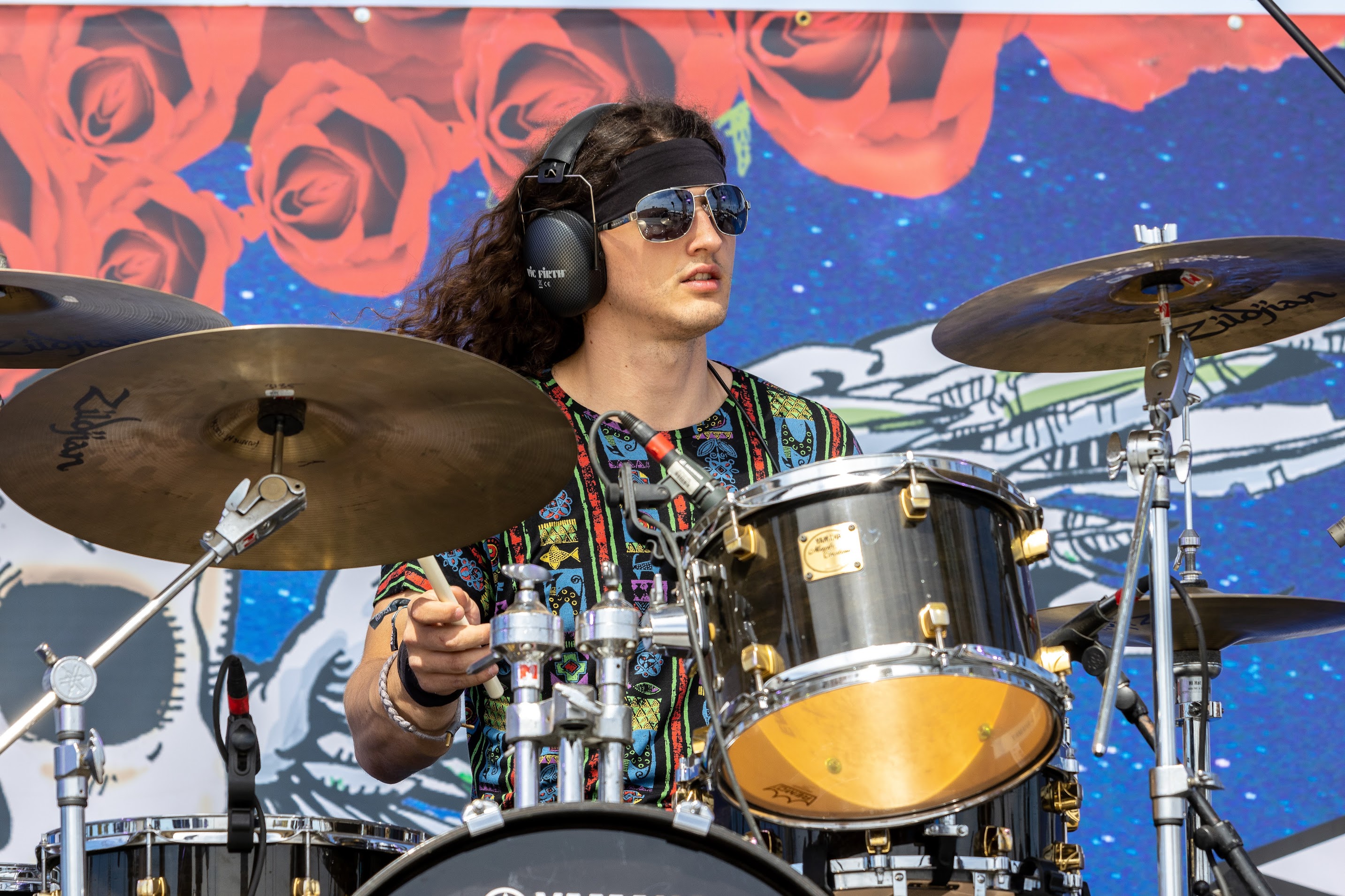
Joey Babick: I think it’s always been there, at least from what I remember. It’s a fun connection to have, especially with someone as talented as Jeremy. He’s great at everything he does. We just have a good musical chemistry. It’s kind of funny, I remember first meeting Jeremy, and some of our interactions were a little awkward – more personally than musically. But then, the first couple of gigs with him were just crazy. We had a few rehearsals, and then the gigs themselves were a blast. It was so much fun. It’s been great to connect with someone so involved in both harmony and rhythm within the group. He’s a very rhythmic player, and again, he’s just a fantastic player in general. It’s exciting trying to keep up with him, in a way.
GW: Being a huge Deadhead, did you learn anything from Billy Kreutzmann? Especially regarding his technical skills and stage presence? Are you a fan of "Drums/Space"?
Joey Babick: Yeah, definitely. I grew up with my dad being a big fan, so I was always exposed to that music. By the time I started listening to it on my own, I absolutely fell in love with his playing – especially the early stuff from the late '60s and 1973. I always thought 1973 was such a great year for him. His playing has this interesting touch, almost a musically inconsistent way of approaching different grooves. It’s really fascinating in some of those recordings. That was also my first real exposure to improvising on a drum set, too. So, yeah, for sure, I’d say it definitely sticks with me. And I’ve always enjoyed "Drums/Space." It’s fun, and it’s a great time.
GW: Being on the road can be tough with all its demands. Is there someone in the band or crew who keeps the morale high? Any jokesters or good prank stories?
Joey Babick: It's funny you ask. I’d say our lighting director, AJ, is a huge morale booster. He’s always lifting spirits. He’s also a fantastic lighting director. When we brought him onto the crew, he hadn’t been running lights for too long, but he’s already really good at it, and he’s only getting better. Plus, he’s super knowledgeable about all sorts of things – trailers, car mechanics, all that useful stuff when you’re on the road. He’s just a super funny guy and a great hang. He’s a blast to be around. Honestly, he’s just the man. A great dude.
GW: You debuted a new kit early last year. How has it affected your playing?
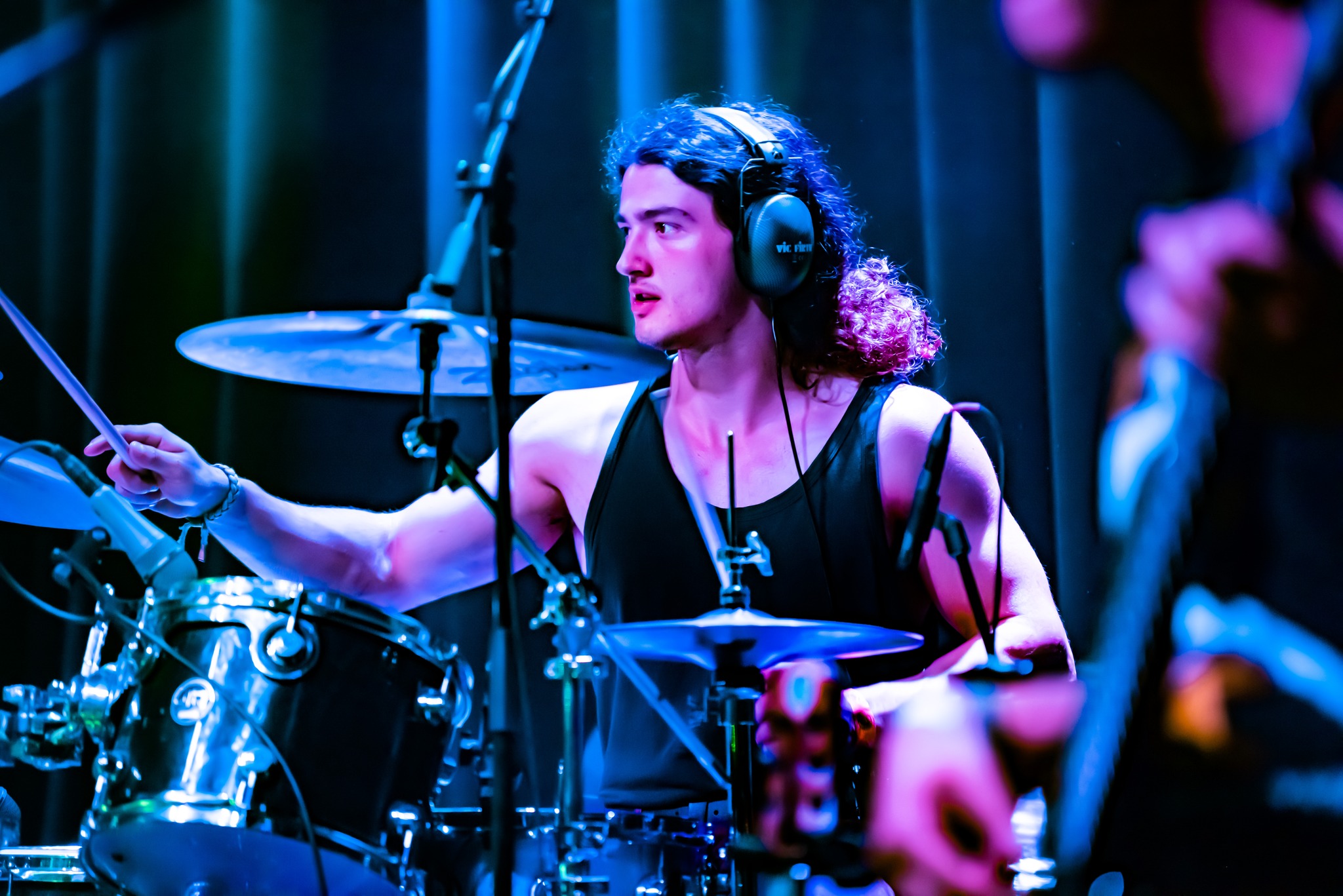
Joey Babick: Hopefully, positively. I like to think that I’m definitely more comfortable on this kit than I’ve ever been on any other drum set. It gives me the kind of feeling I’ve always wanted from a drum kit. It’s really cool to have something like that, and it was a fantastic process getting it all customized through the great people at Ocean County Music in Point Pleasant, New Jersey. They’re fantastic folks there.
Everything, from the hardware to the finish, the bearing edges – everything was custom. It’s exactly what I’ve been looking for as a drummer for a long time, and it’s been really fun. I’m still getting used to it; I had the DWs before this kit and was very used to those after seven years of playing them. But I’m a big fan of the new setup, and I’m excited to explore more Ludwig products. It’s cool stuff. I’m on their website all the time, checking out the latest gear. It’s awesome.
GW: Are there any recent new bells or whistles that you'd like the Dog Pound to know about, any special sound effects?
Joey Babick: I got a couple of new cymbals recently. I got a Meinl cymbal and a couple of Mongiello cymbals. Those are great. I wouldn’t say they’re custom to me, but they’re beautiful, handmade cymbals. The guy who makes them is Mike Mongiello, and I believe he's based in Philly. I was also gifted a Paiste 2002 24-inch ride. The thing’s a monster. Our friend Jim gave it to me. It’s sweet.
GW: For the less technically inclined, what does that piece do?

Joey Babick: It’s just a very large cymbal called a ride. You ride on it and play different patterns with either your right or left hand, while keeping the backbeat with your other hand. It’s a nice piece, for sure.
GW: How do multi-night runs at the same venue differ from a string of standalone shows in multiple cities?
Joey Babick: They’re way chiller because you don’t have to break down your gear every night, which is great. But, yeah, I mean, that’s the big thing for me at least. It’s great not having to break down the whole drum kit for three nights and just being able to walk in every day and sit down. Both are great. I like the standalones too. I like going from city to city and banging them out. It’s fun.
GW: Do you have a favorite venue that you've played at?
Joey Babick: I think probably the one that has interested me the most historically is the Crystal Ballroom in Portland, Oregon. It’s crazy. It’s a ridiculous room. It’s on the second or third floor of this big building, and the whole floor is spring-loaded. The whole perimeter of the floor is on these weird spring hitches. So when you're walking all the gear on the floor, you can feel it bouncing under your feet. It’s pretty scary because once you have a room full of people jumping around, it’s really freaky. The Dead played there. They did some impromptu acid tests in ‘69 or something – maybe ‘68. I think the place might’ve been closed at the time, though.
GW: Take us through last year’s New Year's Eve run in Saratoga Springs. Did it test the band’s endurance and mental prowess playing in front of mostly the same crowd for four nights in a row?

Joey Babick: I suppose you could say that. Each night, you just kind of get a little more comfortable. By the third set of the fourth night, though, you’re starting to get pretty fried. But, musically, I thought the second and third nights were really strong. Yeah, I mean, it was definitely a test of endurance. That was the first time I think we’d done four straight nights at the same venue. So that was interesting.
GW: “Charlie” from 12/30/24 was your longest jam ever. Did you go into the song knowing that it would be your longest jam? And how does the band decide to extend a jam past its typical length?
Joey Babick: Yeah, I had no idea. I don’t think any of us knew it was going to be that long. We had a whole setlist written out – I think I still have it in my phone somewhere. But yeah, there was no real decision made to extend it. We all just kind of felt it out, and it just happened. Everyone kind of thinks differently about it sometimes. It gets so long sometimes that I come off stage and think, "That was long. I hope it was worth it." Some people were super stoked on it, and yeah, I listened to a good amount of it. I thought it was pretty interesting.
GW: Is that the type of jam that you come off stage and immediately talk about it with your bandmates, or is that not really the dynamic of the Dogs?
Joey Babick: It kind of depends. Some of us probably did. I don’t think I really said anything about it right off the bat. But yeah, it depends. Sometimes, if something crazy happens, then yeah, like "Holy s***, that was sick!" But for me, I was in this unsure state, kind of like, "Damn, that was long." Obviously, you can’t remember all of it, so it’s like, again, I hope it was good.
GW: If it captivates our attention for 47 minutes, that’s an accomplishment. Yeah, it was GOOD.
Joey Babick: Thank you. [smiles and laughs]
GW: Why did the band choose “Chop Shop” as the first song to play in 2025 after the balloon drop?

Joey Babick: Good question. I think it’s a pretty hype song. It just goes hard. It’s fun as hell to play and very energetic. The crowd seems to like it.
GW: You started out this year on the West Coast, playing shows in Arizona, California, and the Pacific Northwest. Do you ever experience any type of culture shock out West? And how is it different than the East Coast?
Joey Babick: I mean, it’s weird because to me, it’s mostly just a vibe or an energy thing, for the most part. People are people wherever you go. There are nice people and not-so-nice people everywhere, that’s just the way it is. But yeah, out there, it’s hard to explain. It’s just something in the air, I don’t know. It’s just different. It’s strange. Also, just historically, out there, there’s a lot of cool stuff going on.
To me, that’s where it started. People say that there are different classes of hippies or whatever you want to call it. But you find some real straight-up hippies out there, and that’s not exactly something you see too much on the East Coast. I’m talking real down-to-earth hippies, and it’s really cool. The culture is still there. It’s still going. Especially in a place like San Francisco. The whole Haight-Ashbury area is just full of Deadhead stores and all these eclectic-looking folks hanging around. It’s a cool thing to see.
GW: Your future tour schedule features some unique stops. You’ll be spending about a week in New Orleans during Jazz Fest, with two headlining gigs at the Chickie Wah Wah and a featured spot on Trombone Shorty’s Shorty Fest lineup. Talk to us about what you’re expecting from that trip.

Joey Babick: That’s a huge, hard-hitting musical environment that is somewhat new to me – not new to my knowing or anything, but just new in terms of actual real-life experience. You’re surrounded by a ton of really, really good musicians. You want to lead with your best foot at all times. I’m excited to go back. It’s crazy down there.
GW: In June, amidst a robust summer festival schedule, you’ll be making your debut at Bonnaroo. Is the band excited to play on “The Farm”? Does it mean anything to you?
Joey Babick: I mean, I will say that it’s probably not the oldest festival, but it’s one of the first and only festival names that I remember hearing as a kid growing up – just the word “Bonnaroo.” Yeah, so it’s great, and there are a ton of amazing acts. I’m sure we won’t be able to see everyone, but it’s exciting to be a part of something like that musically. And yeah, we’re stoked.
GW: To wrap up our last (but not least) interview with all the members of Dogs In A Pile – we’ll ask a question we’ve asked all five Dogs now: what does the Dog Pound mean to you?
Joey Babick: The Dog Pound is great. We really appreciate everyone. It’s so cool to see. It’s incredible to see how supportive everyone is. Nothing’s perfect, and people are going to point that out sometimes. But it’s crazy to see, honestly, how somewhat rare it is in a lot of these environments. How everyone’s super supportive. As well as the regional fans who go out and drive X amount of hours to come to whatever show if we just so happen to be passing by one of the adjacent states – it means a whole lot and is super appreciated.
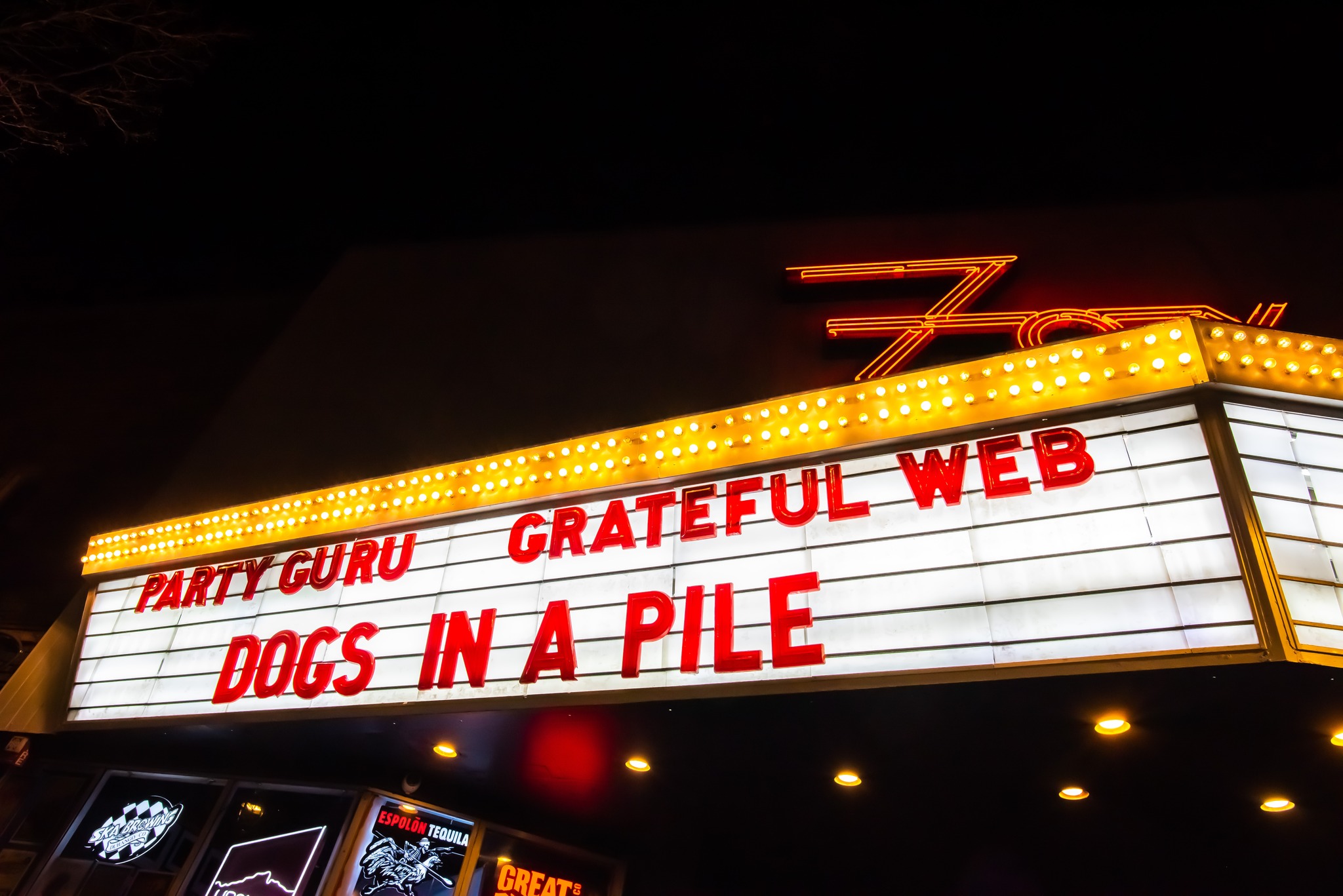
Check out other Grateful Web interviews with the rest of Dogs In A Pile: Sam Lucid (bass/vocals), Brian Murray (guitar/vocals), Jeremy Kaplan (keys/vocals), and Jimmy Law (guitar/vocals).
Ready to join The Dog Pound? Head over to www.dogsinapileofficial.com for their latest soundboards, tour dates, setlists, merch, and much more.





